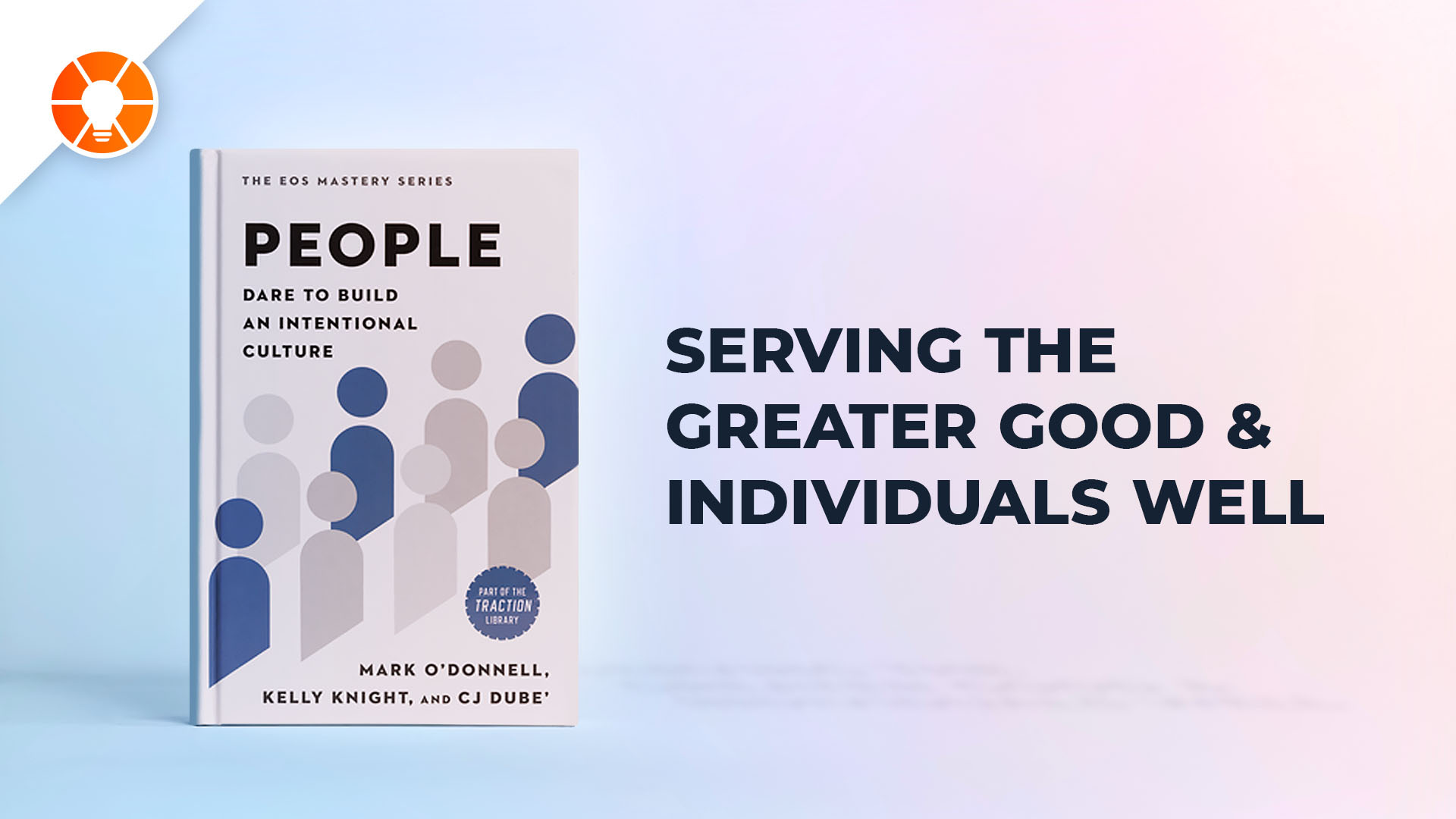
When you’re a Visionary or Integrator in a dynamically growing company, it‘s natural to be driven and controlling (maybe a little overly controlling). Too often, being overly controlling of your V/I counterpart is the root of some pretty dysfunctional Visionary/Integrator (V/I) relationships. And it leaves a path of destruction for the entire team.
As an observer of human behavior, I’ve noticed the dynamics in some V/I relationships: the overly controlling Visionary and the overly controlling Integrator.
The Overly Controlling Visionary
When I see a Visionary unable to let go of the vine and delegate roles they previously held, it spurs a few questions about what may be happening.
Does this controlling behavior mean the Visionary doesn’t have the right person in the right seat (RPRS)? Do they have confidence and trust in their Integrator? Does the V/I Duo have a well-thought-out plan in place for the transition of duties? Is the Visionary ready to let go?
Sometimes, the Integrator truly is the right person for the seat. They share the company’s vision and Core Values and can execute the role effectively. In these cases, a Visionary’s resistance or controlling nature can really hold back themselves and their company.
Here, I’d ask the Visionary, “What’s the worst thing that could happen if you let Pat [the Integrator] make the call?”
I remind my team at EOS Worldwide, “No one is bleeding out on our operating table today.”
If the Integrator (or someone else) makes a mistake, we simply learn from it, correct it, and move forward. Leaders need the opportunity to try and win (or fail).
Without letting go of control, the Visionary will always be “in” the business rather than working “on” it. It helps to remember that the ultimate goal is to free Visionaries to live in the top left quadrant of the Delegate and Elevate Tool.
As a Visionary, you should be doing what you love, and are great at doing, at least 80% of the time. That’s how you live The EOS Life®!
The Overly Controlling Integrator
Too often, I see Integrators attempting to control their Visionary counterparts in situations where that tends to be counterproductive.
For example, it may not be reasonable or realistic to expect your Visionary to perform at the same level of fact-finding and follow-through as you. Use your Same Page Meetings to compare your Kolbe® scores and reach a mutual agreement on expectations.
A frustrated or annoyed Integrator who adopts a reactionary, controlling attitude may restrict their Visionary’s idea-generating, creative-thinking superpower, which often ends poorly for the V/I Duo.
In these cases, I urge Integrators to step away and clear their minds. Then, when they return, they should work together with their counterpart to get on the same page and resolve the issue at the root. I find it helpful not to assume anything other than positive intent.
Integrators can have more success in the V/I relationship if they:
- Acknowledge the Visionary’s Personal Core Focus or their God-given talent and abilities
- Let the Visionary be who they are naturally
- Mutually agree on which roles fall within the Visionary seat vs. the Integrator seat
- Clearly define how the V/I relationship should feel when it’s working well
To get (and stay) on the same page long-term, Integrators need to be good listeners. While it may not come naturally to you, learn to value and appreciate the ideation process. I hear Integrators wanting to shut down the Visionary prematurely. They may grumble about the amount of time it takes to listen to their Visionary’s myriad of ideas. But that’s where the gold is!
With the right process in place to vet ideas over time, does the Integrator genuinely enjoy that process with their Visionary? Consider this a litmus test for whether this is the right duo for the business.
Nurture the V/I Relationship
The above should not be confused with either leader agreeing with everything their counterpart says. The V/I relationship must use the natural tension and productive friction to generate the Rocket Fuel that drives business results.
The V/I chemistry is crucial to the organization’s success. At its best, it creates a culture of accountability and results. At its worst, it can be devastating, especially with a team observing discord and tension.
By allowing both the Visionary and the Integrator to own their seats fully, each can better serve the greater good of the organization. This also makes for a more harmonious V/I relationship and a healthier team culture in the organization.






